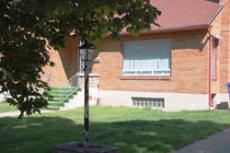The month of Ramadan
It is called the month of the Qur’an: in this month, the month of September, the verses of the Quran revealed by God to Prophet Mohammad (peace be upon him). It is the month number nine in the lunar calendar, it is full of noble virtues to people, it is a month unlike other months. It is the month of Ramadan.
Fasting Ramadan is the third pillar of Islam and Muslims all around the globe spend the daytime hours from dawn until sunset in complete fasting. Fasting is not just abstaining from drink and food, but rather a full worship and a full control. It is a restrain for the body and soul from all worldly lusts and impurities to refocus attention on God.
Fasting is the full control over the body organs. It is where the tongue stops gossiping and eyes must not fall on unlawful things. The hands and legs must not reach, touch or walk to sinful things and places and ears must not hear bad words. Spiritually, Muslims spend every night in reading the Quran, praying and visiting the kith and kin.
In Ramadan there is a night called Lailatul Qadr, “the Night of Power,” which falls sometime in the last 10 days of the noble month. If one seeks this night and commits himself to sincere obedience and worship, it will be better for him than praying and fasting for 1000 months, which is equivalent to 83-84 years of man’s life. So what if man spends his life in a sincere, non-stop worship to Allah? The reward must be great, Allah willing.
Muslims, in Ramadan, break the routine of life and reach out to others through touching their problems and needs, helping alleviate the hardship of life on poor people through collecting and giving charity and alms. The outreach should exceed the Muslim community to other community members from other religions to develop understanding and solid knowledge about Islam. So by fasting Ramadan, Muslims experience self-discipline, humility, kindness and generosity.
At the end of the fasting month of Ramadan, Muslims celebrate Eid El Fitr for another three days. During Ramadan, every Muslim has to pay an obligatory charity and must be given to the poor people before Eid El Fitr. This allows them to buy clothes and food to celebrate Eid El Fitr as well.
In Ramadan, the number of meals is reduced to one large meal called Iftar, which is eaten after sunset. On Iftar, Muslims also invite their family members, relatives and friends and send food to the needy in their neighborhoods who do not have enough food for themselves and their children.
In the Logan community, Muslims come together with families at least one day a week to have collective Iftar. They also take the time to read the Qura’an, pray Taraweeh and then continue with their own obligations. The people of the Logan community are welcome to join us on Iftar on any Saturday during Ramadan and learn about Muslims in the local community. We expect Ramadan for this year to be observed on Monday, September 1st. May Allah help us to purify our hearts and strengthen our faith.

